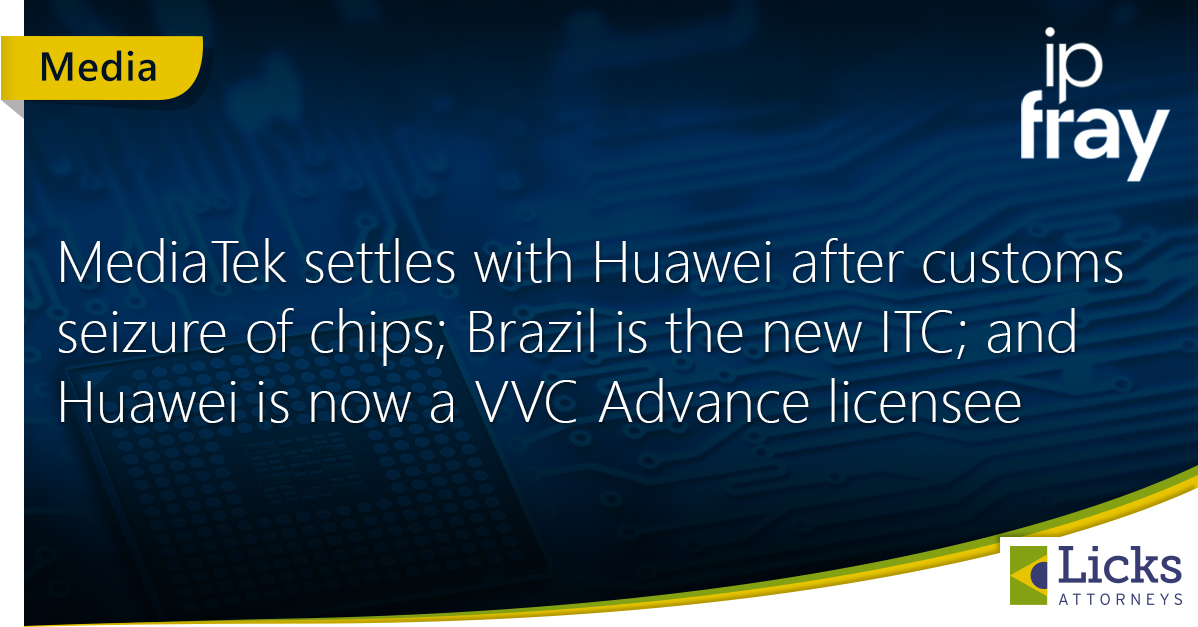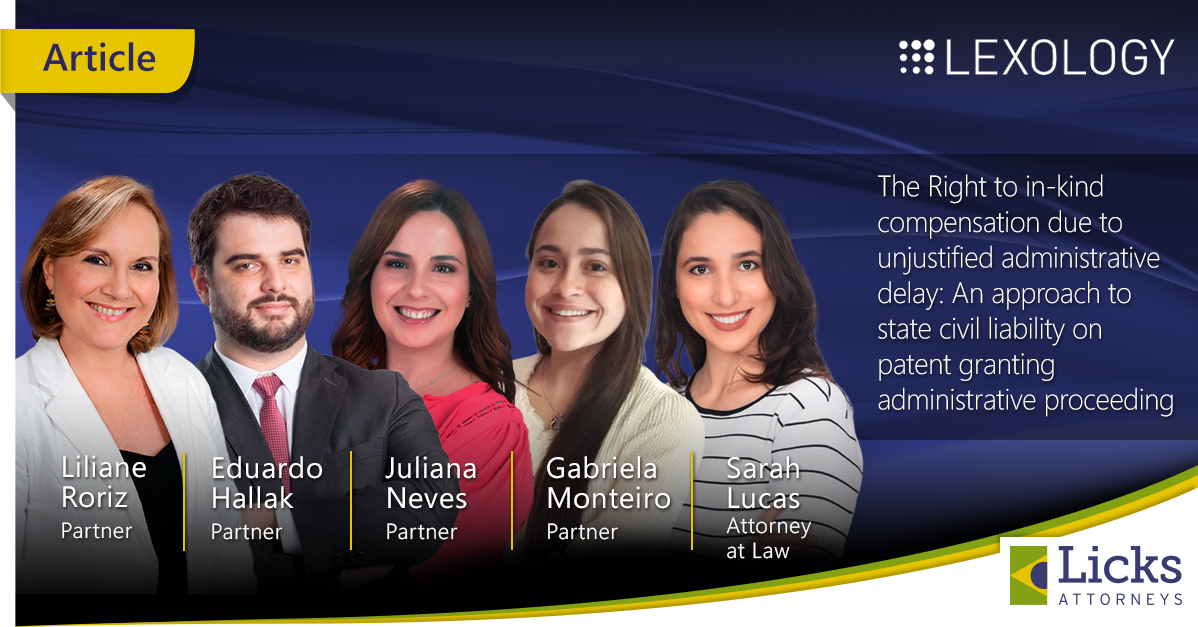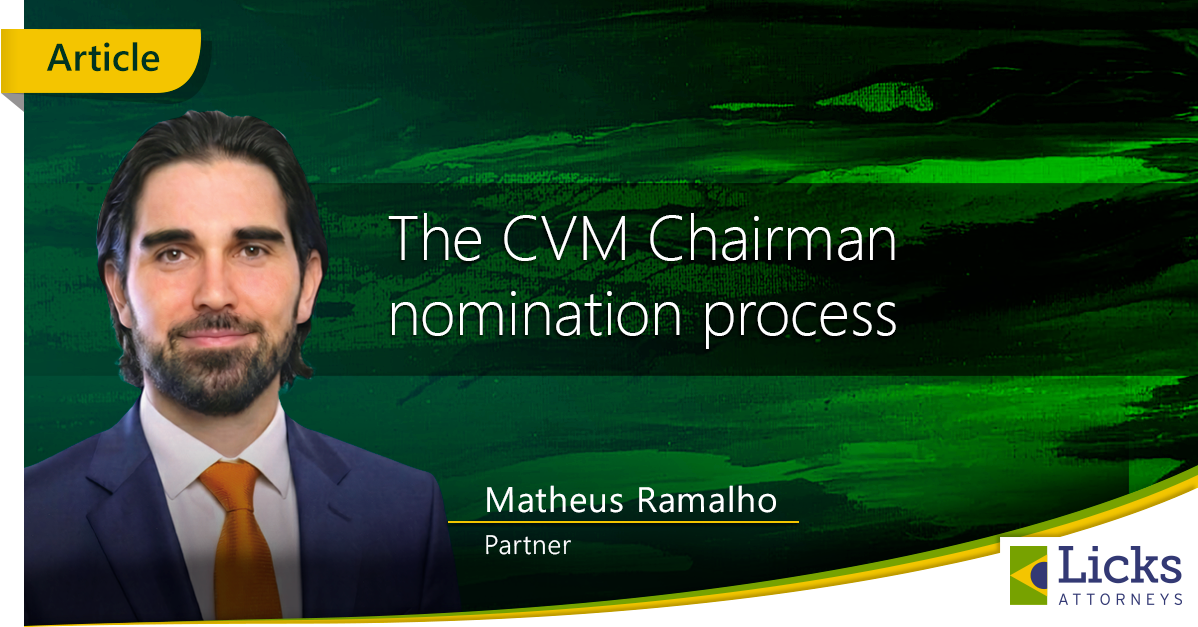MediaTek settles with Huawei after customs seizure of chips; Brazil is the new ITC; and Huawei is now a VVC Advance licensee

Context: MediaTek used to be one of the most vocal proponents of exhaustive chipset-level licenses to standard-essential patents (SEPs), but took the opposite position in a dispute with Huawei. MediaTek’s hold-out strategy involved UK FRAND (fair, reasonable and non-discriminatory licensing) litigation (April 15, 2025 ip fray article). Cases were pending in various jurisdictions, but Brazil was ahead of the crowd with a couple of preliminary injunctions (PIs) that issued in the spring, one over a 4G SEP and one over an Enhanced Voice Services (EVS) SEP.
Read more: ip fray
RECENT PUBLICATIONS
-

The Right to in-kind compensation due to unjustified administrative delay: An approach to state civil liability on patent granting administrative proceeding
February 23, 2026 -

Acordo de proteção de dados Brasil-UE: O que muda para as empresas?
February 19, 2026 -

The Appointment of Commissioner Otto Lobo as Brazil SEC’s Chairman
February 13, 2026

